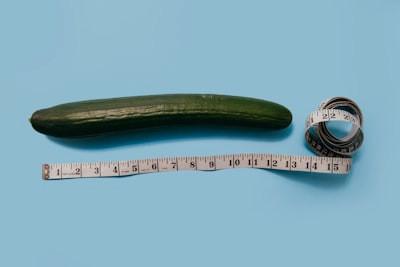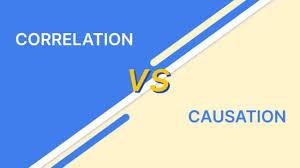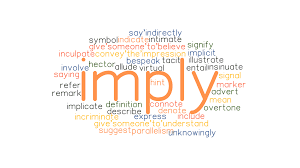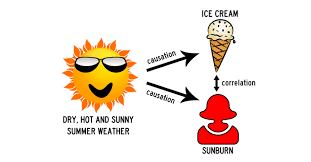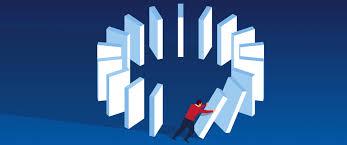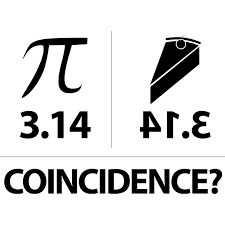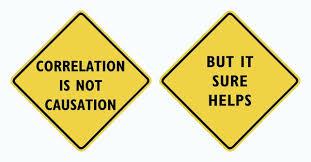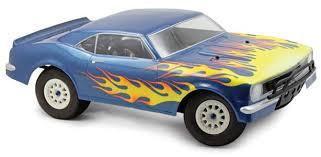Correlation does not imply causation
Curated from: en.m.wikipedia.org
Ideas, facts & insights covering these topics:
7 ideas
·903 reads
9
Explore the World's Best Ideas
Join today and uncover 100+ curated journeys from 50+ topics. Unlock access to our mobile app with extensive features.
Correlation vs. Causation | Differences, Designs & Examples
Correlation means there is a statistical association between variables. Causation means that a change in one variable causes a change in another variable.
Correlation and causation are two related ideas, but understanding their differences will help you critically evaluate and interpret scientific research.
14
236 reads
Usage, and meaning of 'imply'
In casual use, the word "implies" loosely means suggests rather than requires. However, in logic, the technical use of the word "implies" means "is a sufficient condition for".
Where there is causation, there is correlation, but also a sequence in time from cause to effect, a plausible mechanism, and sometimes common and intermediate causes. While correlation is often used when inferring causation because it is a necessary condition, it is not a sufficient condition.
13
140 reads
Example of illogically inferring causation from correlation
Example:
The faster that windmills are observed to rotate, the more wind is observed.
Therefore, wind is caused by the rotation of windmills.
In this example, the correlation (simultaneity) between windmill activity and wind velocity does not imply that wind is caused by windmills. It is rather the other way around, as suggested by the fact that wind does not need windmills to exist, while windmills need wind to rotate. Wind can be observed in places where there are no windmills or non-rotating windmills—and there are good reasons to believe that wind existed before the invention of windmills.
12
108 reads
In other cases it may simply be unclear which is the cause and which is the effect.
For example:
Children that watch a lot of TV are the most violent. Clearly, TV makes children more violent.
This could easily be the other way round; that is, violent children like watching more TV than less violent ones.
12
117 reads
The relationship between A and B is coincidental
The two variables are not related at all, but correlate by chance. The more things are examined, the more likely it is that two unrelated variables will appear to be related. For example:
The result of the last home game by the Washington Commanders prior to the presidential election predicted the outcome of every presidential election from 1936 to 2000 inclusive, despite the fact that the outcomes of football games had nothing to do with the outcome of the popular election. This streak was finally broken in 2004 (or 2012 using an alternative formulation of the original rule).
12
98 reads
Proven Evidence
Correlation is a valuable type of scientific evidence in fields such as medicine, psychology, and sociology. Correlations must first be confirmed as real, every possible causative relationship must be systematically explored. In the end correlation alone cannot be used as evidence for a cause-and-effect relationship between a treatment and benefit, a risk factor and a disease, or a social or economic factor and various outcomes. It's one of the most abused types of evidence, because it is easy and tempting to come to premature conclusions based upon the preliminary appearance of a correlation.
12
89 reads
Quotes
“Cars with flames painted on the hood might get more speeding tickets. Are the flames making the car go fast? No. Certain things just go together. And when they do, they are correlated. It is the darling of all human errors to assume, without proper testing, that one is the cause of the other.”
-Barbara Kingsolver, Flight Behavior
“Causality = Correlation + Assumptions”
-J.N. Berkemeijer
15
115 reads
IDEAS CURATED BY
CURATOR'S NOTE
Correlation verses Causation
“
Tom Joad's ideas are part of this journey:
Learn more about psychology with this collection
Cultivating a growth mindset and embracing challenges
Developing adaptive thinking and problem-solving skills
Effective learning frameworks and approaches
Related collections
Similar ideas
7 ideas
3 ideas
4 ideas
See an Exciting Trend in That Chart? Proceed with Caution.
insight.kellogg.northwestern.edu
Read & Learn
20x Faster
without
deepstash
with
deepstash
with
deepstash
Personalized microlearning
—
100+ Learning Journeys
—
Access to 200,000+ ideas
—
Access to the mobile app
—
Unlimited idea saving
—
—
Unlimited history
—
—
Unlimited listening to ideas
—
—
Downloading & offline access
—
—
Supercharge your mind with one idea per day
Enter your email and spend 1 minute every day to learn something new.
I agree to receive email updates
